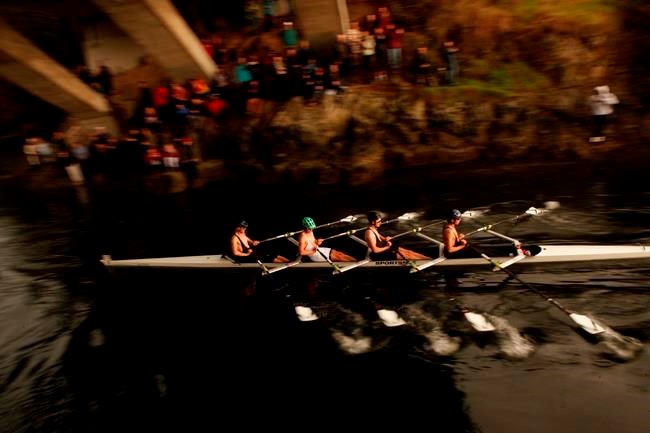Rowing Canada is planning an independent review of its high-performance culture and governance in the wake of "concerns" voiced by members of the rowing community in late 2021 and early 2022.
"We are committed to creating a healthy and respectful environment where our members feel confident to lead, compete, and coach," Rowing Canada president Carol Purcer said in an open letter published Friday. "We are committed to ensuring that RCA (Rowing Canada) fosters respectful interactions between all participants, free from all forms of harassment and abuse.
"The safety and well-being of all RCA athletes, coaches, staff, umpires, and volunteers is of utmost importance."
Women's head coach Dave Thompson was fired in February 2020, five months ahead of the original start date of the Tokyo Olympics.
The dismissal came after a 2019 complaint filed against him under Rowing Canada's Prevention of Abuse, Harassment, and Bullying Policy.
No reason was given at the time, but a report by an independent third party, released in July 2020, concluded that Thompson violated the harassment and bullying sections of the policy.
Purcer sees the planned review as "the next step to making things right."
She said while the governing body had planned a quadrennial review after the Tokyo Games, "some unresolved issues percolated back up again."
"We wanted our community to know that we heard them and we want to understand better how we can make things the best for athletes so they have the best culture to train for the next Olympics, for Paris which is coming up very fast (in 2024)," she said in an interview.
The hope is the review process can start by the end of March, complete with an "anonymous mechanism" for providing feedback, and be completed in some three months, Purcer says.
"As required, (Rowing Canada) will engage experts to support the implementation of the recommendations emerging from the independent review," states the letter.
Asked to detail the concerns raised, Purcer said she could only talk in generalities due to privacy.
"Some of the concerns are about not ever letting that environment happen again," she said. "And that's our concern as well."
Issues raised included "deep concerns about the high-performance training environment and its oversight, transparency in communications, interpersonal issues, unclear roles and responsibilities, and unclear complaint management processes," Rowing Canada said in its open letter.
"It's just a few individuals that are struggling right now but others are very concerned for their friends that are struggling," said Purcer. 'They're looking for answers and, of course, the world of sport we live in now, (it) is so important to have a safe environment and athletes to feel they can speak their truths when they feel it.
"I'm very happy our athletes are speaking up. I wouldn't have know that was the feeling if they hadn't spoken up. So I think that's a great thing that athletes do feel they can speak today, they can be heard today and we're responding to them today and putting something in place that we can all learn from."
As for the timing, Purcer suggested it's because athletes have returned to training after taking time off following last summer's Tokyo Olympics.
"They've come back together now and many of these questions are still being sussed out," she said.
"We've also removed a number of coaches from our environment that were also creating difficult training and working environments for the athletes and coaches," she added. "So we've made a lot of changes that way but for some people, they want to know more, they want to see more happen or see more changes happen.
"So by taking the time to get an independent review, have someone look at us from the outside and tell us what else we need to do to make the environment better, we're very happy to learn from that."
Purcer said the governing body will do what's needed, including making governance chances if required, "to ensure that the environment that the athletes are training in every day and the coaches are working in feels safe to everybody involved."
Rowing Canada isn't the only sports organization reviewing its high-performance landscape. Rugby Canada is going through a similar process in response to a bullying and harassment complaint filed by past and present members of the women's sevens team.
Purcer says while her organization has a "robust" safe sport third-party process that can address complaints, it doesn't really provide an avenue to manage concerns.
The other issue is the length of time to resolve a complaint. She cited the Thompson complaint, which took some eight months to resolve.
"That's a long time for somebody who's feeling in crisis, to be managing themselves with the community and having to wonder whether they're going to be supported or not with the decision."
There are other ways to be heard. Purcer noted Rowing Canada's board features a Victoria-based athlete director who is well connected to the athletes.
Canadian rowers won two medals in Tokyo, with the women's eight claiming gold and Caileigh Filmer and Hillary Janssens taking bronze in the women's pair.
---
Follow @NeilMDavidson on Twitter
This report by The Canadian Press was first published Feb. 25, 2022.
Neil Davidson, The Canadian Press


